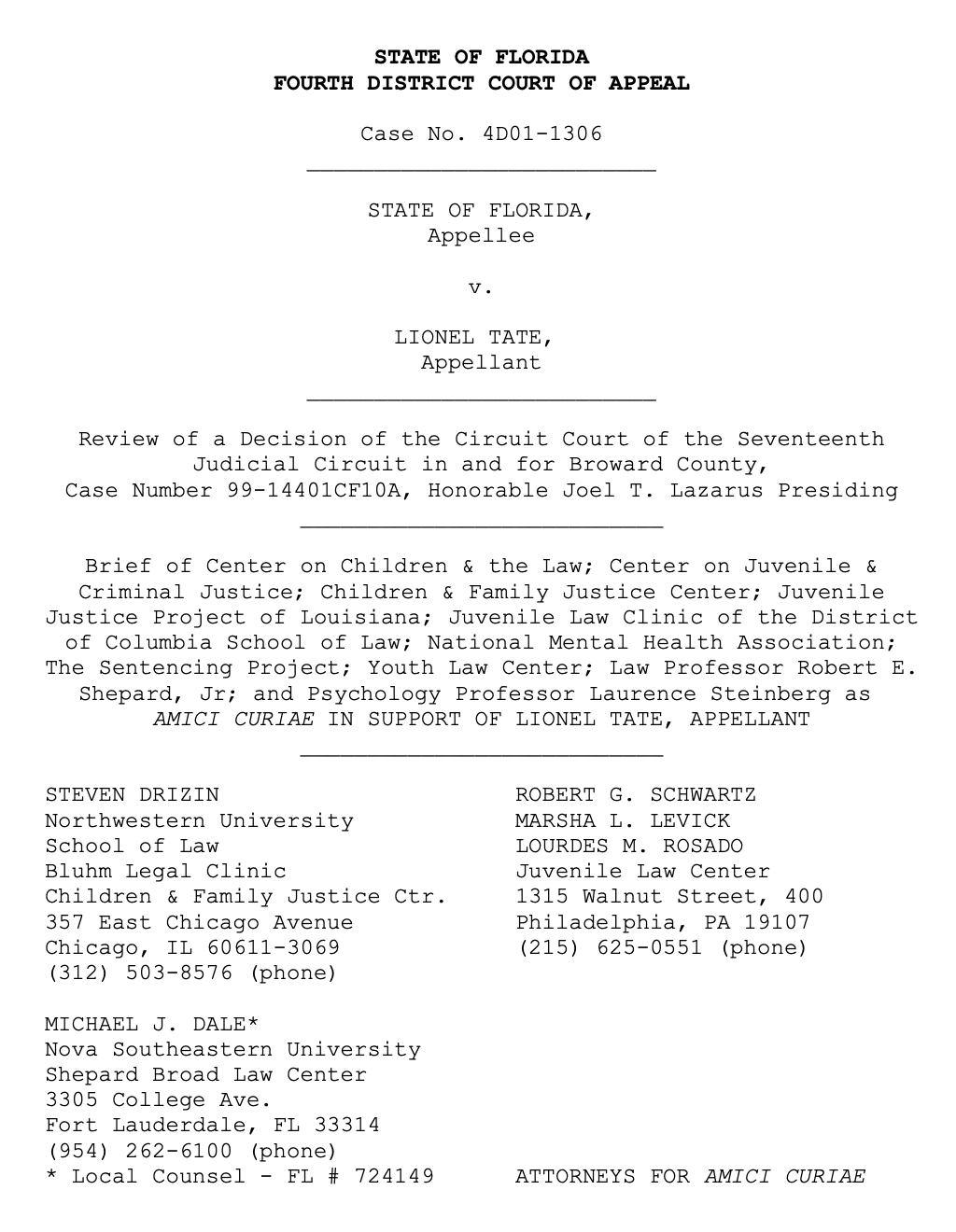
Summary of Argument
The ruling below must be reversed because it both failed to properly consider Lionel’s age and developmental stage as well as violated federal and state constitutional guarantees of due process, equal protection, separation of powers and the ban on cruel and unusual punishment.
At common law, there is a rebuttable presumption that children between ages seven and 14 lack criminal capacity. Lionel should have had the opportunity to address the infancy defense-- which is still viable in Florida in criminal court-- as required by due process. Similarly, the trial judge erred in failing to address, sua sponte, the issue of Lionel’s competence to stand trial. There is every reason to believe that Lionel was not competent to direct his defense, to waive his right to avoid self-incrimination, or to determine whether he should enter a plea.
The Florida transfer scheme violates due process because it fails to afford juveniles a hearing prior to the state attorney divesting the juvenile court of jurisdiction by seeking a grand jury indictment. Equal Protection is violated by the statute’s failure to distinguish between juveniles charged with crimes punishable by death or life imprisonment for the purposes of juvenile or criminal court jurisdiction; provides no criteria to guide prosecutorial discretion in these cases; and denies these juveniles the opportunity to be sentenced as juveniles upon conviction. The statutory scheme also violates principles of separation of powers, by effectively allowing the state attorney to define the jurisdiction of the juvenile court. Finally, a sentence of life without parole for a 12-year-old violates cruel and unusual punishment.